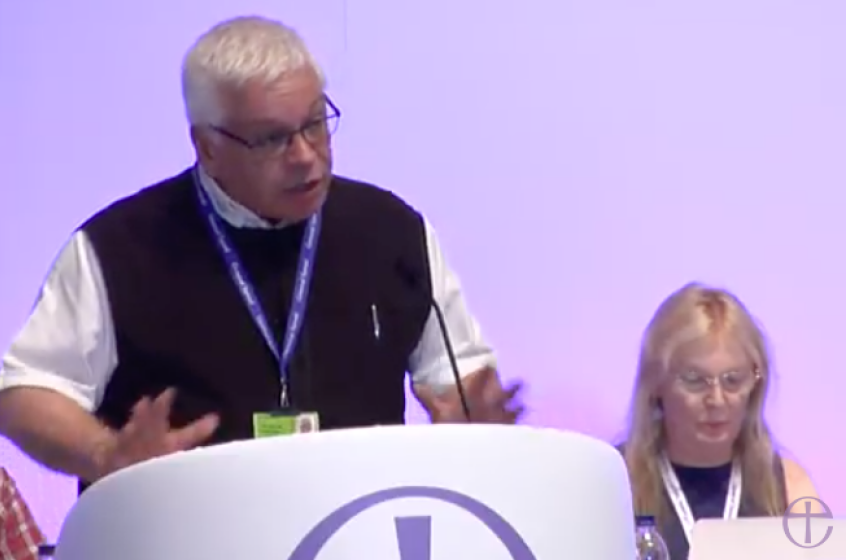The Church of England has shot itself in the foot and 'missed an opportunity' by refusing to write a new liturgy specifically for people transitioning gender, a leading member of its General Synod has said.
Writing for the ViaMedia website, Giles Goddard, vicar at St John's Waterloo and chair of the synod's Human Sexuality group, described the bishops' response as 'inadequate on so many levels' after CofE bishops said clergy should use existing liturgy to mark gender transition rather than draft a new service.

But questions were also raised over whether the Church of England had been misleading in how the decision was made. In a press statement it said 'the House of Bishops has prayerfully considered' the issue.
However Christian Today understands the issue was not debated by the House of Bishops in full and instead the verdict was reached by a sub committee of nine bishops. That committee, including the Bishop of Blackburn, Julian Henderson, the Bishop of Willesden, Pete Broadbent, and the Bishop at Lambeth, Tim Thornton, then briefed the remaining bishops who rubber-stamped the decision.
A spokesman for the Church of England said that, because the House of Bishops only meets twice a year, decisions that require more thought are made in a sub committee and brought to the others for approval.
'The House of Bishops Delegation Committee considers issues relevant to mission, ministry and general public policy, so is an ideal forum to give this question detailed consideration,' the spokesman said.
'The full House of Bishops was briefed on the committee's recommendation and accepted it at the December meeting.'
But concerns were raised among campaigners for a change in the Church's approach to sexuality that the issue was not given a full debate by bishops.
'It's another shot into the CofE's foot,' wrote Goddard for ViaMedia.News.
'The House of Bishops has just, once again, missed an opportunity to present itself – and the Church of England – in a positive light. It has, once again, displayed a cloth ear on questions of sexuality and gender. And it has, once again, ignored the will and the request of General Synod,' he said.
'The damage is done, and no amount of spin from Church House can undo it. But it's not too late to change course. I hope the House of Bishops will reconsider this position.'
However Ian Paul, a conservative blogger and theologian, said there was an important distinction between welcoming trans people and writing specific liturgy for them.
'The problem with the motion as it was presented was the absolute connection made between "welcome" and "liturgical materials",' he wrote.
'The practical question is what it means to adapt existing liturgy to respond in a "creative and sensitive way". Like the unhelpful phrase "radical Christian inclusion within the Christian tradition", it seems to me that this offers the invitation for clergy to do what they wish, and further undermines the role of bishops as teachers and guides.
'The overall effect of this double move – to vote for the motion as it was first presented, then to reject the request for new liturgy – has probably diminished the standing of the bishops on all sides. Those wanting radical change see this as double dealing, whilst those wanting reassurance about the bishops' commitment to historic understandings of sexuality and marriage see too many loopholes.'













